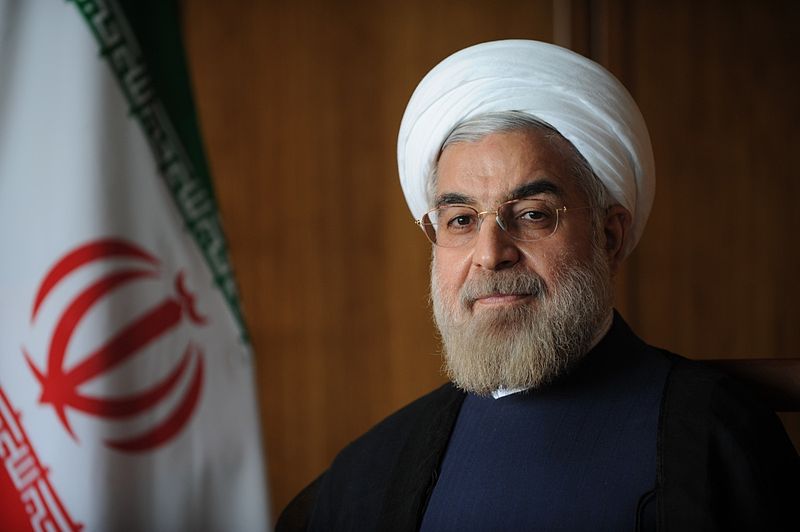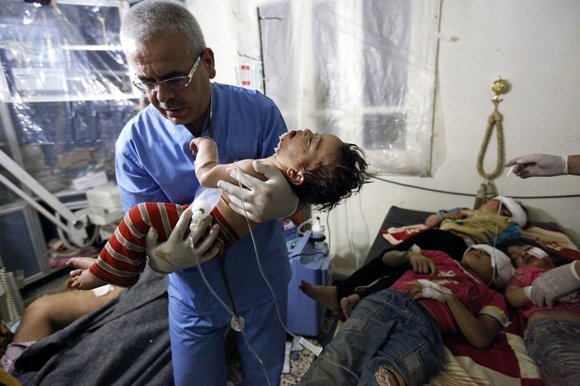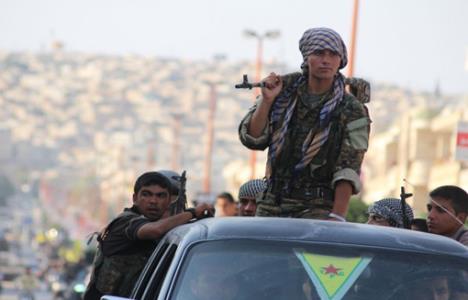The religious cleric who won Iran’s June 14 presidential election was officially sworn in last Sunday following formal endorsement by Supreme Leader Ayotollah Ali Khamenei. President Hassan Rouhani ran on a platform of “moderation,” promising to improve relations with the West and increase civil liberties at home. For the West, Rouhani’s election brings hope that Iran’s nuclear program can finally be reined in and Iran will become a cooperative member of the international community. These are wrong-headed expectations. Rouhani is not the man in charge. The Supreme Leader is Ali Hosseini Khamenei, who is commander of the armed forces, chief of the three branches of government (judiciary, legislature and executive), and appoints all the principal office holders in the state. In effect, the Supreme Leader heads a sort of clerical oligarchy of loyal theological, military, security, and intelligence officials—these are the men who call the shots in Iran, not the President. The President’s role is to carry out the day-to-day duties of the executive, with various officials, advisory bodies, and councils in subordinate positions and roles. But he is not there to formulate policy.
[captionpix align=”left” theme=”elegant” width=”475″ imgsrc=”http://previous.presstv.ir/photo/20130616/fathi20130616163546177.jpg” captiontext=”Rouhani is not the man in charge.”]
The Iranian system of government was created by and for Ayatollah Ruhollah Khomeini, the leader of the 1979 revolution and Iran’s first Supreme Leader. Khomeini’s objective was to put in place a clerical system that gave the Supreme Leader ultimate power beyond the control of popular sovereignty. When Khomeini died in in 1989, Khamenei was chosen as his successor by the Assembly of Experts, some 80 or so Islamic theologians elected for eight-year terms by the people. Since coming to power, Khamenei has steadily acquired even more power than Khomeini. He has eliminated opponents and transformed elected institutions and individuals into little more than echo chambers for his decisions.
There are two broad political groups in Iran: conservatives and reformers. Khamenei has done everything he can to marginalize the reformers by rigging elections and increasing the political power of the Revolutionary Guards. Conservatives dominate all the many advisory councils and other state institutions. When a Khamenei-backed Mahmoud Ahmadinejad ran against the popular reformist and former Prime Minister Mir Hossein Mousavi in the 2009 presidential election, Ahmadinejad was declared the winner with 63% of the vote just a few hours after the polls closed. Protests involving millions of Iranians continued for the following eight months, and were eventually suppressed by force. In the parliamentary elections held in March 2012, Khamenei’s power was shored up when 70 percent of the 225 seats awarded in the first round went to Khamenei loyalists. This is the clearest evidence that Khamenei has the final say on anything of significance in Iranian politics. Candidates he does not approve will not be allowed to stand, or if allowed to stand will not be elected. Policies he does not favour will not pass.
Hopes that Rouhani will bring about a new era in Iranian politics, a period of openness, reason, and moderation, should be met with scepticism. Rouhani is but a figurehead in an immensely complex political system. His influence on policy will be far less than we would expect from someone who is the elected President of an aspiring nuclear power.




